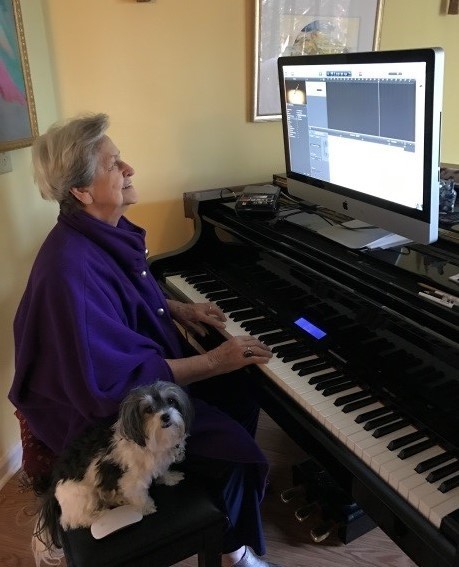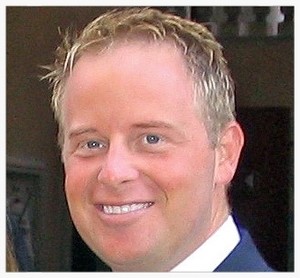Closing the gap: TechVine helps seniors benefit from smart devices

Most people remember the leap to smart devices circa 2010, when tech giants Apple, LG and Samsung forever changed the way people looked at cellphones.
Before the initial shock of a touchscreen keyboard even wore off, a generational rift formed, dividing those adapting to new technology such as iPhones and tablets and consumers who opted to hold onto their “dumb phones” – flip devices with tangible keypads meant to function as phones and not much else.
According to tech educator Michael Schmitt, that shift had unexpected consequences: seniors getting “left behind” in an increasingly adaptive world. To remedy the situation, he founded TechVine, a company geared specifically toward tech education for seniors.
As a tech educator, Schmitt guides seniors through 10-week courses at beginner and intermediate levels. TechVine also offers packages, hourly lessons, group lessons and seminars. Through each session, Schmitt said, the company aims to “eliminate the intimidation factors” commonly associated with learning to use smartphones by creating a personalized approach to them. The goal: to make the transition easy while demonstrating how technology can help with everyday activities, connectedness and functionality.
The digital divide
Schmitt first recognized the need for such a service in 2013 after returning to the United States from Italy. The former teacher, nurse and volunteer began working at AT&T, where he noticed a pattern of increasingly baffled seniors struggling to keep up with the technology that had suddenly become so deeply ingrained in their lives.
“They missed the gap,” Schmitt said. “That jump from desktops to smart devices – iPads, iPhones, Androids, you name it – and as the world moved toward those devices, they continued to use what they had. All of a sudden, these devices are failing and they can’t make that jump anymore.”
That leap consisted of increasingly complex devices, interfaces and functionality that made telecommunication almost secondary to features like video streaming, messaging and picture taking. Each new generation of devices strays further from the basics – and it can deter seniors from trying them altogether. But technology has stopped for no one, Schmitt said, and its evolution creeps ever closer to the services vital to seniors.
“Now, suddenly even pharmacies are saying ‘use our app to reorder your medication,’” he said. “Kids are deferring to Facebook to share photos of grandchildren, banks are recommending applications to help manage finances. There are so many different ways it becomes more necessary to [understand], but it’s a completely different language.”
Schmitt recognized the overwhelming abilities of smart devices as one factor keeping seniors from adapting; the other side, he said, was the frustration families often felt in trying to get them to learn. In his own teachings, Schmitt has tapped into the desire to adapt in order to demonstrate the ways that seniors and people with disabilities could be helped with smart devices.
Guided learning
Schmitt’s clientele consists of people in the Beaches area, including residents of Cypress Village, where he acted as an iPad instructor. He also installed home systems like Amazon’s “Echo,” which can be programmed to accept voice commands that allow users to create reminders and make small adjustments to things like the temperature or light intensity. The community served as somewhat of a testing ground where Schmitt could “tweak” his offerings to meet the mission, and where he first learned how to get seniors on board with technology that could prove helpful in their lives.
One example of his instruction is Bess Turk, a Cypress Village resident who began to lose her vision due to macular degeneration years prior to moving to the community. Turk’s condition made for abrupt changes in her lifestyle, occasionally causing her to miss appointments and forget daily activities. Schmitt worked with Turk to create a system with Amazon Echo – a system that answers to the name “Alexa” – that would allow her to turn her lights off and on, create grocery lists, schedule appointments and more with a simple voice command.
“When I met with her, hearing [what she needed] made me realize that there was so much more that could be done,” Schmitt said. “And with a lot of my clients, I feel that this kind of technology isn’t just a novelty – this can be life-changing.”
Schmitt noted that many of his clients are also people with disabilities or limited mobility for whom the challenge of moving around the house was made easier with voice commands.
“Several of my clients have disabilities, some blind or wheelchair bound, and for them, even moving from room to room or reaching a light switch or adjusting the temperature can be difficult,” he said. “And teaching them to embrace a system that they can interact with using their voice … that they can speak to from anywhere in the house just improves the quality of life for so many people.”
Embracing new technology
As he eyes the possibility of expansion, Schmitt looks forward to opening the eyes of people who might have initially rejected the idea of a “pocket computer” in the past. In the process, he hopes more seniors will feel encouraged to get on board with smart technology.
“The end result we hope for is that they feel comfortable with and can include this technology in their daily life to interact and communicate with people and things important to them,” he said. “I want to help them embrace it and stop asking why it’s so different so that they can interact with it and grow that way.”







